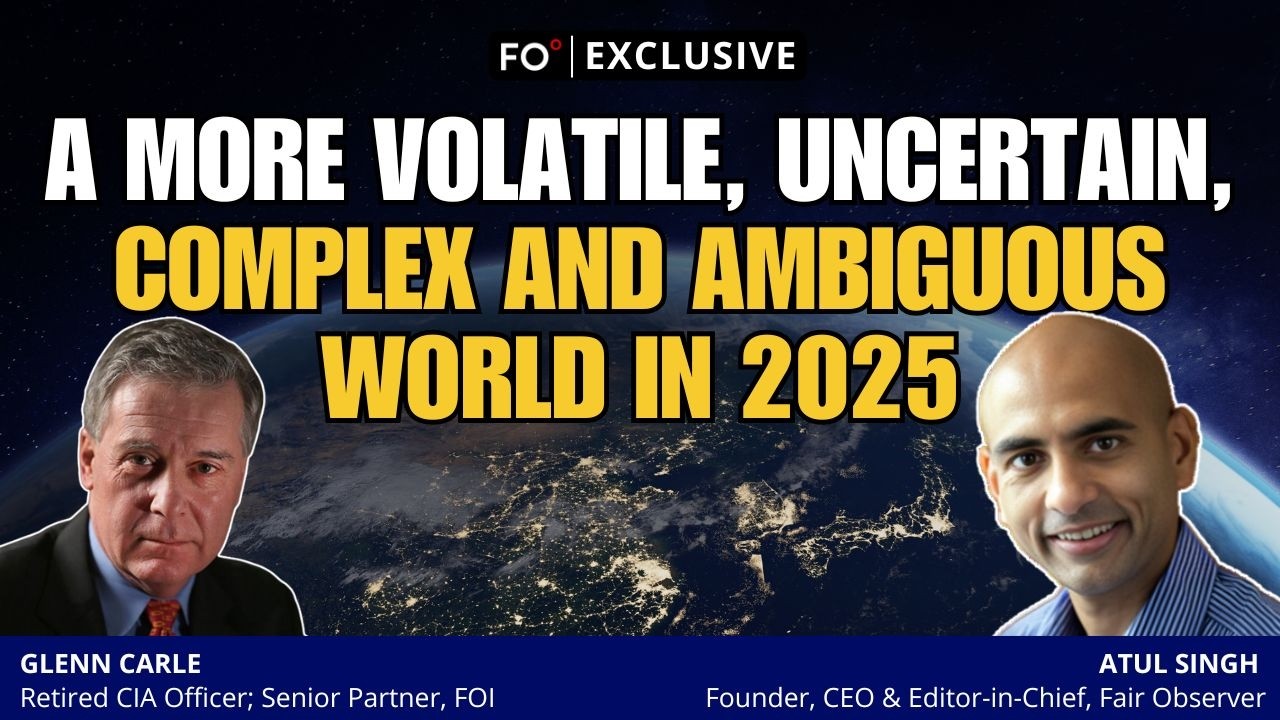There is a structural problem within the US government: It cannot define a long-term foreign strategy. As the presidential position cycles every four or eight years, it is difficult for presidents to establish a policy that lasts after their term. The implications of this situation are evident in the ongoing conflict in Gaza. Despite US President Joe Biden's desire to halt the violence, his ability to act is constrained by the lack of assertive policy when it comes to Israel. There is also significant doubt whether Biden even has enough power to influence Israeli Prime Minister Benjamin Netanyahu.
So is the Republican candidate, former US President Trump, the only option to stop the violence? Trump has prominently campaigned on his strong support for Israel. Whether this is for tactical or genuine purposes is unclear. In his first term, his government took the most pro-Israel approach of any administration. He took the initiative to relocate the US embassy to Jerusalem. Furthermore, he provided financial incentives to Morocco, the United Arab Emirates and other nations to normalize their relations with Israel.
However, future developments in regard to Trump’s Israel policy are difficult to predict. Rumors even suggest that Trump and Netanyahu have a strained relationship. If this is true, Trump’s unpredictability might lead him to exert tough pressure on the Israeli government in order to reshape himself into a peacemaker. Conversely, Biden has shown a reluctance to invest significant political capital in applying serious pressure on Israel.
Israel also suffers from the West’s inaction
Lack of a firm US policy may not bode well for Israelis and Palestinians. Following the October 7, 2023 attack on Israel, there was a global consensus that a two-state solution was the only political perspective imaginable. For various reasons, a one-state solution appears highly undesirable — and a solution involving ethnic cleansing, of course, would be even less desirable. Thus, the least problematic solution is a two-state solution.
A few problems arise here, primarily the question of what must be done with Israeli settlers in Palestine. In a recent study, settlers were asked under what conditions they would be willing to leave their homes, which are considered illegal under international law. Approximately 80% of settlers indicated that they would have no issue relocating to the other side. They only stay for economic reasons. Among the approximately 20% who did not agree, only a small proportion expressed a willingness to resort to unlawful means, such as violence, to defend their communities.
If the Israeli leaders understood this issue, they would do the opposite of what they appear to be doing: arming the settlers. Thus, the true intentions of the Israeli government in Gaza and in the West Bank are being questioned. Is the objective to liberate the hostages and destroy Hamas? Or is there a more sinister intent? These are important questions to answer, especially as Israel faces serious, existential consequences as a result of the war.
Recently, the Population and Immigration Authority released statistics indicating that approximately 550,000 individuals have left Israel since October 7. The majority of these individuals appear to be high-tech entrepreneurs who may have sought safer environments such as California or Berlin for their operations. Because of this, there has been a dramatic economic impact on Israel with a 20–25% loss in GDP. It would be in Israel’s interest to end the bloodshed promptly and to facilitate the restart of the economy.
Uncertainty has become the world order
It is in the interest of the West and Israel to find a solution. However, the West is currently suffering from a lack of the ability to apply and enforce serious measures against violations of international law. In discussions about a rules-based international order and the primacy of international law, the US appears inconsistent. The US criticizes other actors for breaching international laws and imposes stringent sanctions. Why not Israel?
This inconsistency provides a rationale for authoritarian regimes and non-democratic governments to justify their own human rights violations. Iranians point out that the Israeli bombing of their embassy in Damascus has gone without condemnation from Western countries. They argue that if Iran had bombed an Israeli embassy anywhere in the world, the international reaction would have been severe.
It would be in the interest of the West to join forces and develop a comprehensible strategy for the future. Yet, following the latest NATO Summit, it appears that the US aims to create conflict with the BRICS nations (Brazil, Russia, India, China and South Africa). This stance seems contrary to the interests of Germany and other European nations that have dynamic economic and trade relationships with China. It is contrary to US interests as well. Such a move indicates the need for a reassessment of the global role of the US.
However, international measures are also falling short of solutions. The EU, like the US, is facing uncertainty after elections. France’s elections in particular have shown that people are not ready to accept every policy that filters down from the top. It seems like government committees, rather than the people, are making all the serious decisions. There is a clash between the personalities running governments and the common people. Uncertainty has become reality.
In this period of uncertainty, it is highly unlikely that significant decisions will be made. The recent BRICS summit — which will be followed by another in October — indicates that, at least until the US election, other regions of the world are reorganizing at a pace faster than anticipated. The US must tackle its foreign policy issues if it wishes to stay at the top of the world order.
[Tanisha Desai wrote the first draft of this piece.]
[Cheyenne Torres edited this piece.]
The views expressed in this article/video are the author’s own and do not necessarily reflect Fair Observer’s editorial policy.


































Comment